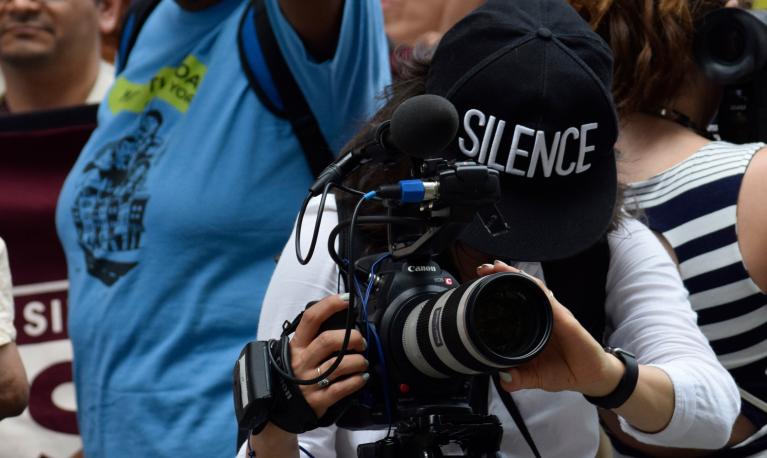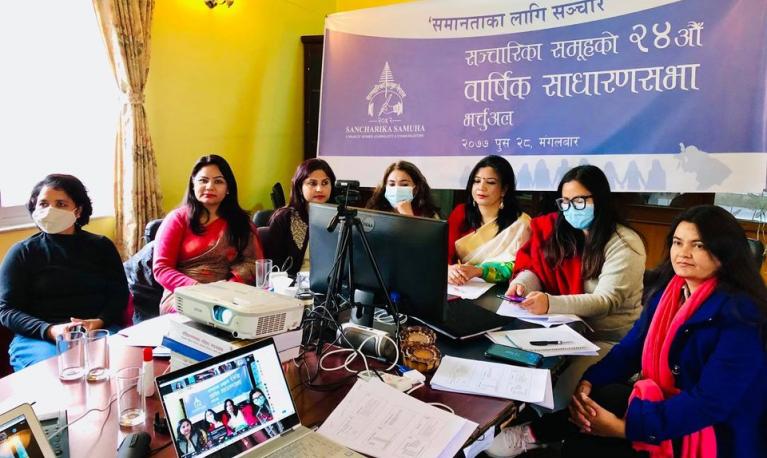
- Webinar
- 2 November 2021, 11:30 - 12:30 GMT
Can broadcast media help change gender norms? Lessons from South Asia
- Organiser:
- ALIGN
- Location:
- Online recording
- Contact:
- [email protected]
This ALIGN event launched a series of case studies which explore how broadcast media can contribute to changing gender norms. Focusing on South Asia, this event drew on the experiences of organisations who have used broadcast media (such as radio, ‘edutainment’ and journalism) to challenge discriminatory gender and social norms.
Our conversation covers how harmful behaviours and attitudes that create inequality between women and men, and other groups based on race, caste, class, ethnicity and sexual orientation, can be effectively tackled through creative media forms. Based on interviews with leading organisations working in this space, new research from ALIGN reveals that different communications mediums, in local and regional contexts across South Asia, have successfully questioned the ideas which form the invisible foundation to discrimination.
Panel
Moderator:
Ammu Joseph — Author and Journalist, Founding Member of Network of Women in Media, India
Speakers:
- Gitiara Nasreen – South Asia Regional Coordinator for Global Media Monitoring Project (GMMP), Bangladesh
- Rajan Parajuli – Country Director of Population Media Center, Nepal
- Nidhi Suresh – Reporter at Newslaundry, India
Plus welcome address from ALIGN's Rachel Marcus and author of media interviews, Faria Nasruddin.
Aims of the event
Women are often under-represented and presented in discriminatory and stereotyped ways in news and entertainment. Their lack of power within the media industry itself, with most leadership positions being occupied by men, means that women are often not making key decisions on what broadcast media chooses to commission, produce and offer to the wider public.
However, this is changing slowly, and progress has been made. This event establishes the current picture of gender bias in South Asian media, as well as what can be done to tap into the transformative potential of broadcast media. There are lessons to be learnt about how media can help reformulate discriminatory gender norms or gendered ‘scripts’ that continue to reproduce patriarchal power relations in society at large.
With a diverse panel of speakers, this event elevates the successes of those leading the way in utilising broadcast media formats and story-telling to push for change across South Asia.
Key questions discussed:
- What is the current state of gender representation in the South Asian media?
- What are the impacts of gender norms portrayed in broadcast media?
- How can we ensure that broadcast media is both entertaining and able to break down traditional gender stereotypes?
- What is the role of mainstream or commercial media in helping to rewrite gender norms (such as men's violence against women and early marriage)?
- How can the industry be brought on board?
Case studies
1 January 2022

Interview
15 December 2021

Interview
6 December 2021

Case study
1 November 2021

Case study
1 November 2021

Case study
29 October 2021

Case study
29 October 2021

Case study
29 October 2021

Case study
29 October 2021

- Tags:
- Media, Broadcast media